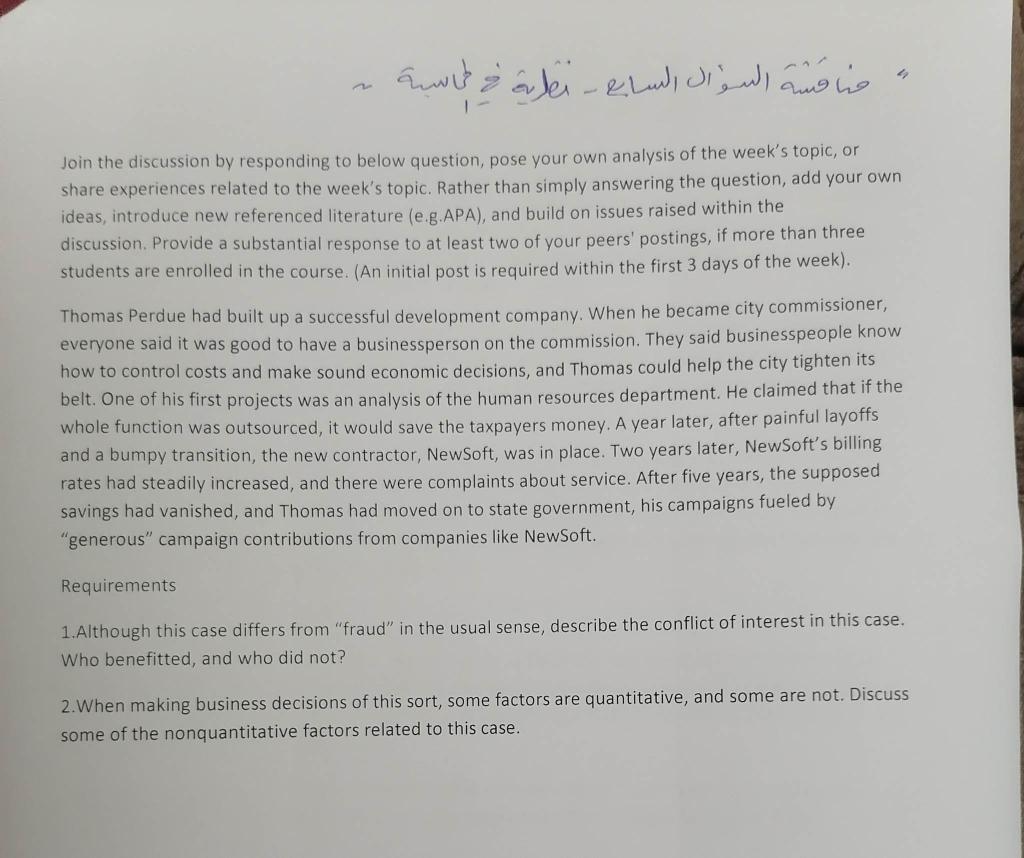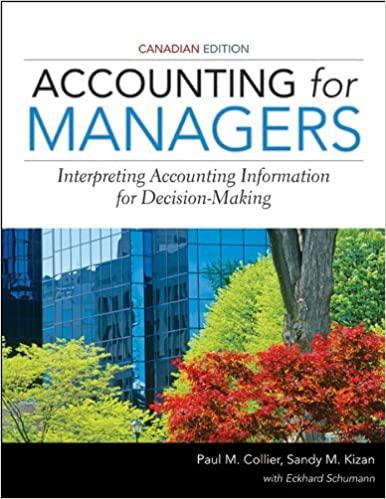
Join the discussion by responding to below question, pose your own analysis of the week's topic, or share experiences related to the week's topic. Rather than simply answering the question, add your own ideas, introduce new referenced literature (e.g.APA), and build on issues raised within the discussion. Provide a substantial response to at least two of your peers' postings, if more than three students are enrolled in the course. (An initial post is required within the first 3 days of the week). Thomas Perdue had built up a successful development company. When he became city commissioner, everyone said it was good to have a businessperson on the commission. They said businesspeople know how to control costs and make sound economic decisions, and Thomas could help the city tighten its belt. One of his first projects was an analysis of the human resources department. He claimed that if the whole function was outsourced, it would save the taxpayers money. A year later, after painful layoffs and a bumpy transition, the new contractor, NewSoft, was in place. Two years later, NewSoft's billing rates had steadily increased, and there were complaints about service. After five years, the supposed savings had vanished, and Thomas had moved on to state government, his campaigns fueled by "generous" campaign contributions from companies like NewSoft. Requirements 1. Although this case differs from "fraud" in the usual sense, describe the conflict of interest in this case. Who benefitted, and who did not? 2. When making business decisions of this sort, some factors are quantitative, and some are not. Discuss some of the nonquantitative factors related to this case. Join the discussion by responding to below question, pose your own analysis of the week's topic, or share experiences related to the week's topic. Rather than simply answering the question, add your own ideas, introduce new referenced literature (e.g.APA), and build on issues raised within the discussion. Provide a substantial response to at least two of your peers' postings, if more than three students are enrolled in the course. (An initial post is required within the first 3 days of the week). Thomas Perdue had built up a successful development company. When he became city commissioner, everyone said it was good to have a businessperson on the commission. They said businesspeople know how to control costs and make sound economic decisions, and Thomas could help the city tighten its belt. One of his first projects was an analysis of the human resources department. He claimed that if the whole function was outsourced, it would save the taxpayers money. A year later, after painful layoffs and a bumpy transition, the new contractor, NewSoft, was in place. Two years later, NewSoft's billing rates had steadily increased, and there were complaints about service. After five years, the supposed savings had vanished, and Thomas had moved on to state government, his campaigns fueled by "generous" campaign contributions from companies like NewSoft. Requirements 1. Although this case differs from "fraud" in the usual sense, describe the conflict of interest in this case. Who benefitted, and who did not? 2. When making business decisions of this sort, some factors are quantitative, and some are not. Discuss some of the nonquantitative factors related to this case







